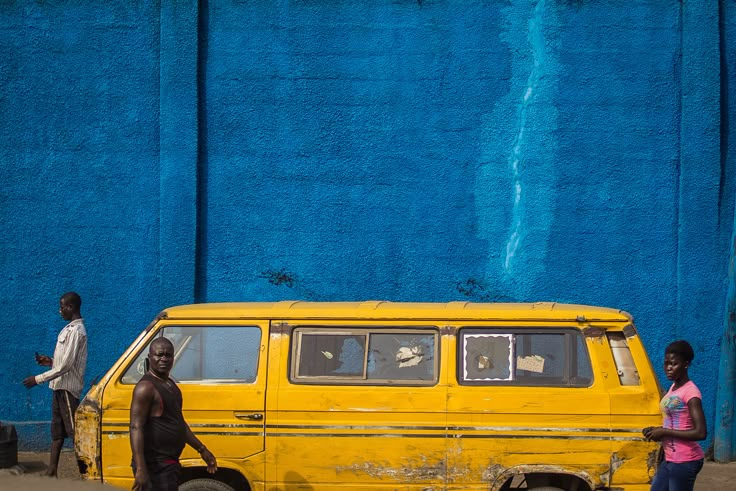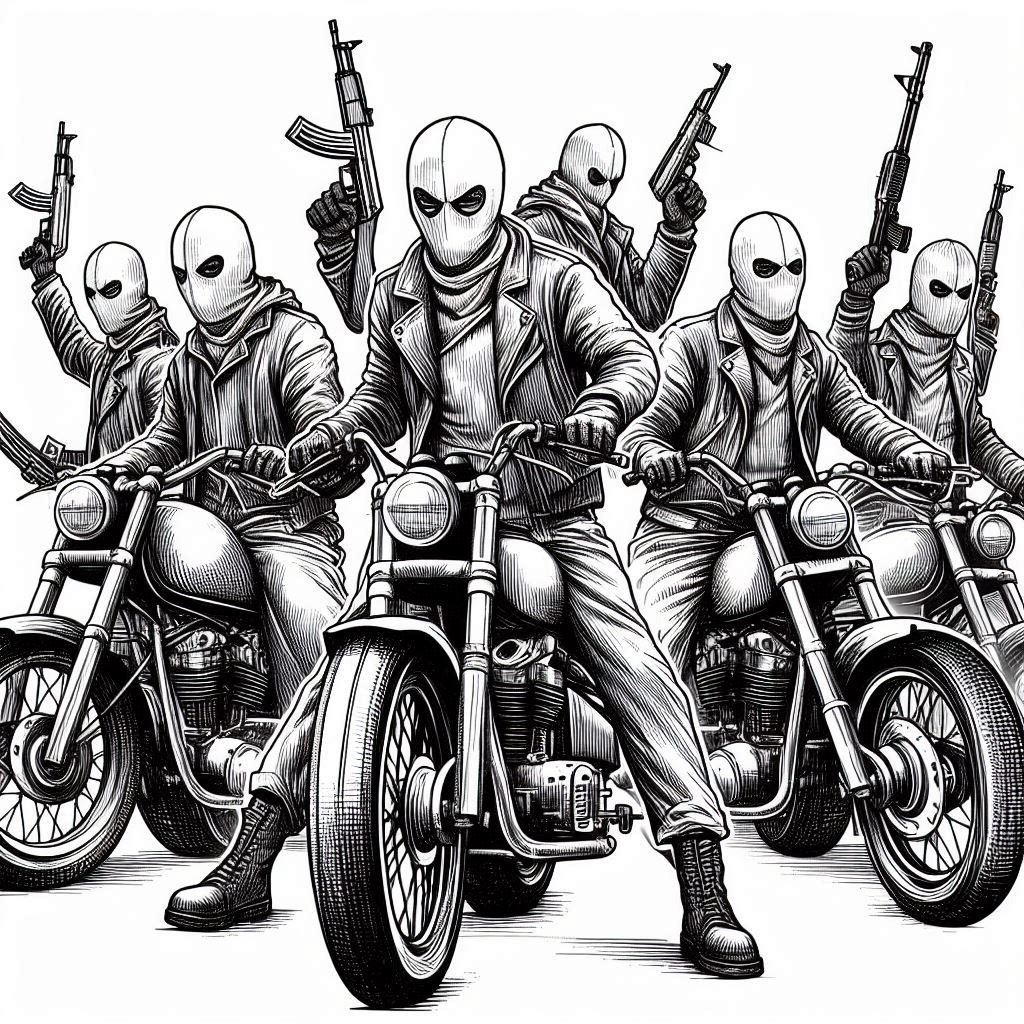This Country is a Razor Close to the Jugular | Minkail Olaitan

And those who aren’t lily-livered had exhausted their voices in an attempt to liberate themselves.
When an ambulance siren sank into a bungalow next to your house, and before a blink of an eye, it blared out again through an enclosing crowd. You need no specialist to tell you what has happened; the only lingering question is who was the victim. You were still trying to figure out what was happening when a gray-haired woman wailed the victim’s name, and in concert, the people erupted in wailing. You knew what that meant; everyone does, but nobody expected it would be Lilith—a 22-year-old fresh out of university. You saw her just yesterday; you even shared a brief pleasantry, but her radiant smiles and free gestures outlasted the moment. They said she was seriously sick, but she didn’t leave any clue of that. And in fact, she blitzed away after your pleasantry. Life is fickle, a worthless pack of shit; it only gets worse in a country like yours.
The other day, your friends dragged you on a movie date; they planned among themselves to rinse you of your introverted life. You refused and gave all sorts of excuses to escape going out, but all fell out of their logical grasp. At the cinema, the movie began with an ambulance blaring through the highway, and when it got to the location, two brothers had injured each other. You nodded in regret for a country you found yourself in; it sparked a conversation, but you were barely interested. Befogged by questions. You tried to squeeze sense out of practices that have become ways of life, the altered perspectives of issues, and indoctrinated folly.
For instance, a visitation by an ambulance is an announcement of demise and a strangler of hope, while in other places it’s a signal of hope. This absurd stance smote you the more you tried to wrap your mind around it. Lilith’s death was announced by the mere arrival of an ambulance, the same way numerous objects embody full events in the most trivial ways. Which you found ridiculous and reductionist of serious issues and events that beg profound intellectual debate and well-thought-out conclusions.
The country is brought closer than hairs on skin; just a peep into the bustling streets, and you can hold the whole country in a glance. Even in the little persiflage of the market women, you can know what dish Mr. President takes for breakfast. The reconnaissance is fluid and unbelievable. The wokeness blossomed.
The noise that pours into your ears from the next street; silhouettes of half-naked young girls interlocked with streetlights and then dissipate at every flash of errant automobile light. The bar down the street with unceasing sounds and lads parading erratically. The politicians with a fleet of SUVs and the crowd of poor masses who run, hailing them for coming around.
The presentiment feeling that inflation is knocking at the door; an increase in fuel prices and the imminent effect on hike daily consumption rates; and the fusillade of diminishing remarks and rhetoric. Next to your window, your neighbor’s generator blares away, and the landlord’s rental closes in on you with inevitability.
The roads claimed more lives than heaven permitted the previous year, so to leave the house, you must consult the road gods, perhaps cast the runes, and feed the earth. But, be aware, the city is not far from you at all.
In your country, politicians, journalists, media houses, non-political commentators, high-bidder touts, religious leaders, and voters are all accomplices in the murder of democracy, the possibility of a working state, and morals alike. The few who managed to escape this ailment are too innocent to raise their voices against titans who feed off the pain and misery of the public.
And those who aren’t lily-livered had exhausted their voices in an attempt to liberate themselves.
II
Your first time in Lagos was unforgettable, perhaps traumatizing. Because you had encountered the country in the most unlikely place, you’d learned about the bustling nature of the state tucked within water, but it sounded like a fabricated fantasy. You’d undergone the shades of hell where you came from; you can never imagine a place flowering with greater intensity and patterns.
Your hometown is probably the last city away from civilization—civilization, your foot—but it’s fair to acknowledge the little the country experiences as civilization. You grew up learning to appreciate what you have and stay content with it, so it’s impressive for you to share this sentiment with your country. In spite of the dilapidated environment you live in. The town weeps for mistreatment every day, painfully underserved.
You finished from a school where you see resignation boldly written on the faces of the teachers, their smiles like the whining of dangerous animals. You didn’t see your laboratory during its glorious days; your classes are like mangers fixed into classrooms every morning through thorough cleaning and sanitation. Because neighborhood animals resume the buildings as soon as students vacate the premises. Chalk used to be treasured; teachers could beat the shape out of any student found mismanaging chalk. That’s where you spent 6 years of secondary education; how close can a country be than that?
Throughout the journey, you encounter your country at numerous checkpoints. It’s so amusing that it takes different forms all the way. At a certain checkpoint, it’s a man in a worn police uniform; his faded collar is obvious, and his boots are as terrible as the road beneath. But his smiles and the way he stretched his hands to the driver, who scratched his palm with money, plus the way he waved and bade you have a pleasant journey, were altogether an art.
At another checkpoint, your country is an arrogant, fierce, and even more pathetic officer who insisted all the bags must be unpacked, and when pleaded, proclaimed he’s doing his job. The driver went with him, and after what seemed like a heart-to-heart bargain, the police officer freed the bus, and your bus zoomed away from the spot. Later, the driver told you he had stretched an N200 note to the officer, but he felt disrespected because he wanted more. So, he later added N300 to it, and that’s why he released the bus.
In the same bus, a woman old enough to have given birth to a child as old as 20 years old or a little more narrated a pitiful story of how her son was framed by policemen on his way to school. According to her, the bus her son traveled with was stopped at a checkpoint, and because the driver refused to tip the policemen, they decided to make scapegoats out of some passengers. They asked them to bring out their baggage, and upon checking, they dropped a prohibited drug, “tramadol,” in her son’s bag. And that’s how her struggle began; she said she’d been on it for about 7 months at the time.
You heaved a robust sigh, felt impelled to narrate your story, but you seem to have experienced so much that you struggle to pick from the catalogue of your woes. To talk about how numerous people have died cheaply of malaria because of a lack of adequate care and healthcare facilities, or how in your local maternity centers, the labor room is a step away from the mortuary.
You wish you could pick the part where ballot boxes and election materials get delivered in time and how politicians take turns covering miles with hooplas and glowing promises and exquisitely detailed manifestos and speeches, but once they are elected into office, they forget the existence of your hometown.
You surfed through your mind, finding a story that fit the narrative, but you decided to keep silent and let out frequent sighs. Except that as you cross the long bridge, slowed by the hold-ups, you could smell Lagos — it smells different, and the air is indeed tense, and men look rogue despite being in suits, and those without suits seem totally different.
One thing, though: it seems each home has superheroes, and their customs are fixed on their faces. In the midst of the holdup, a boy brisked past your bus, and some guys chased him, saying, “Stop him, e don obtain that mama phone,” and in a couple of seconds, the boy became smaller and smaller as the distance got wider.
The driver and almost all the rest of the passengers seemed unruffled, and you lost sight of the happening; you managed to stay composed. But then, the driver quipped, “Both the chaser and thief are in the same group.” And he switched unbelievably, “You no dey see Abi? You dey craze,” and the woman in the other car responded in the same manner.
You craned a bit outside in wonderment. In a moment, you were dropped amidst the sea of yellow buses, and up above you, an overhead bridge. And right there, you know, here, butterflies had better stay as caterpillars, because the country is close down to the jugular and is unsparing here.
You put a call through to your aunt, who had made your life a living hell throughout the journey with calls. “Hello, Auntie Mary, I’ve reached Beggar…” “Thank God! Who told you that?” “The driver told me. Shebi there’s a tall bridge there”? “Yes, please keep your phone and your bags. Don’t talk to anyone. Just find a spot and wait for me. I am on my way to pick you up.”







Hmmm… Indeed reading isn’t just a hobby but a medium of transport that conveys reader round the globe.
Beautifully written.
This is powerful.